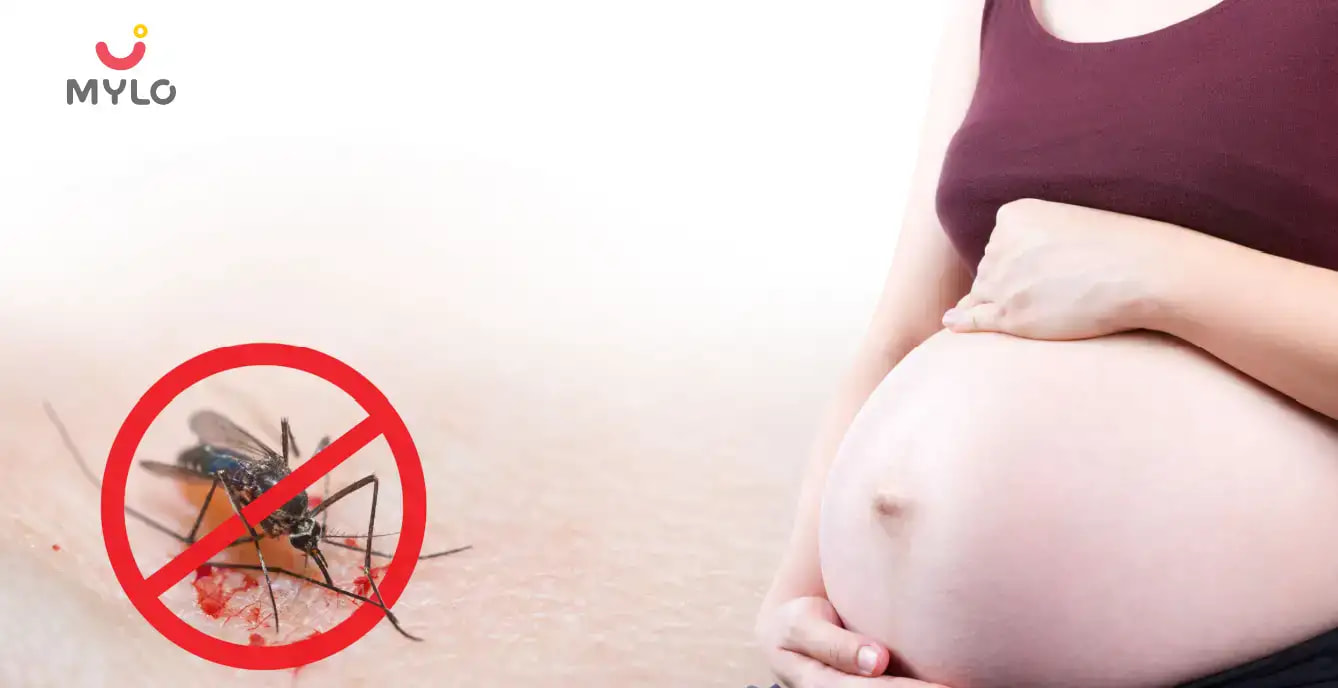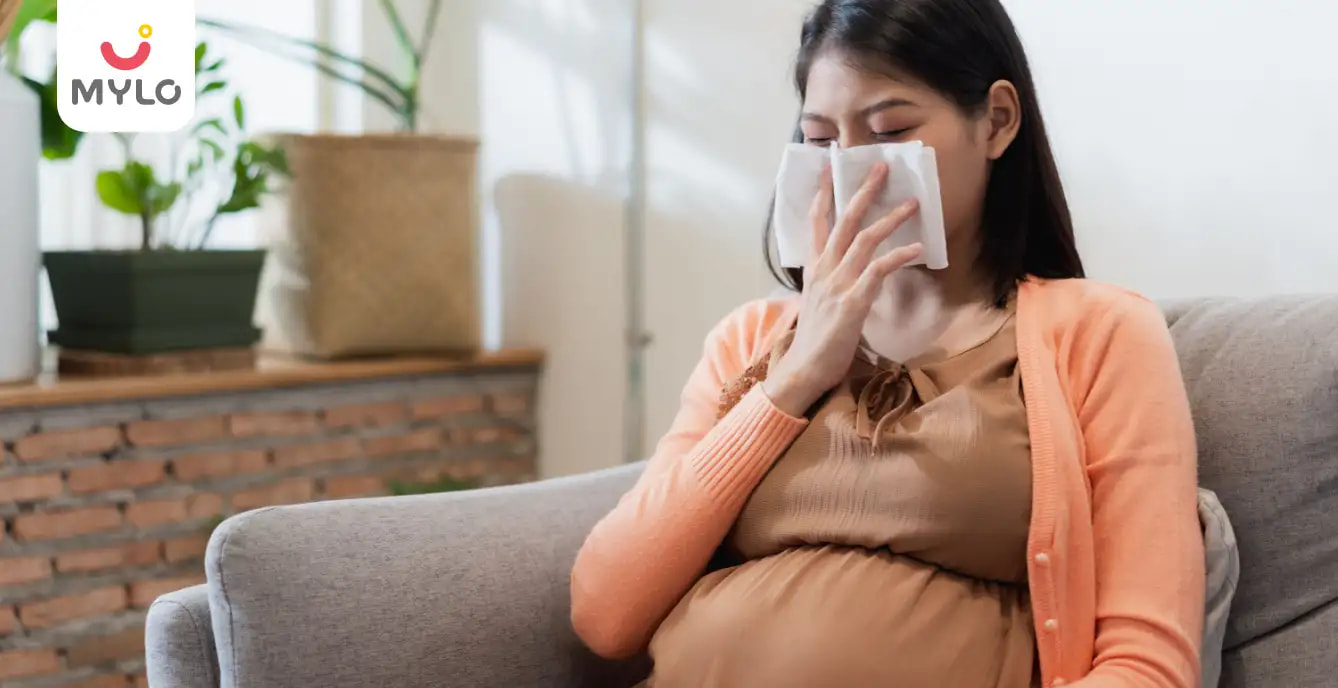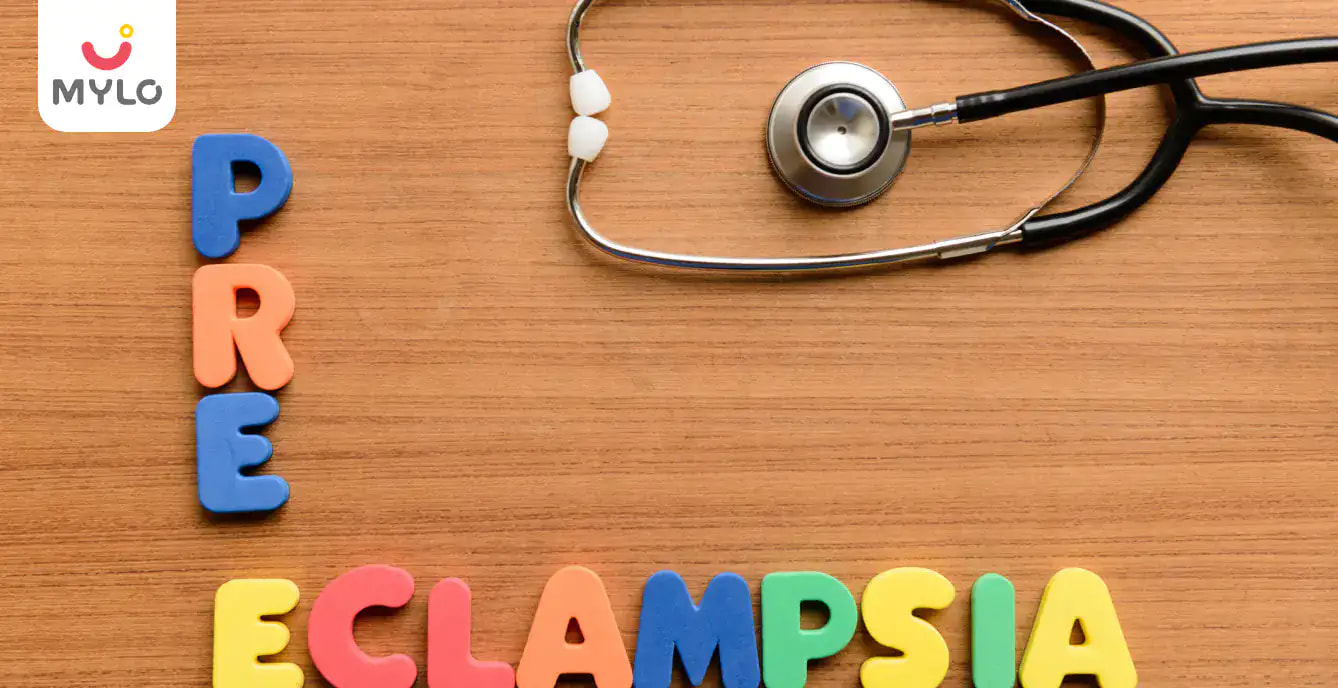Home

Malaria in Pregnancy: Causes, Effects & Treatment
In this Article
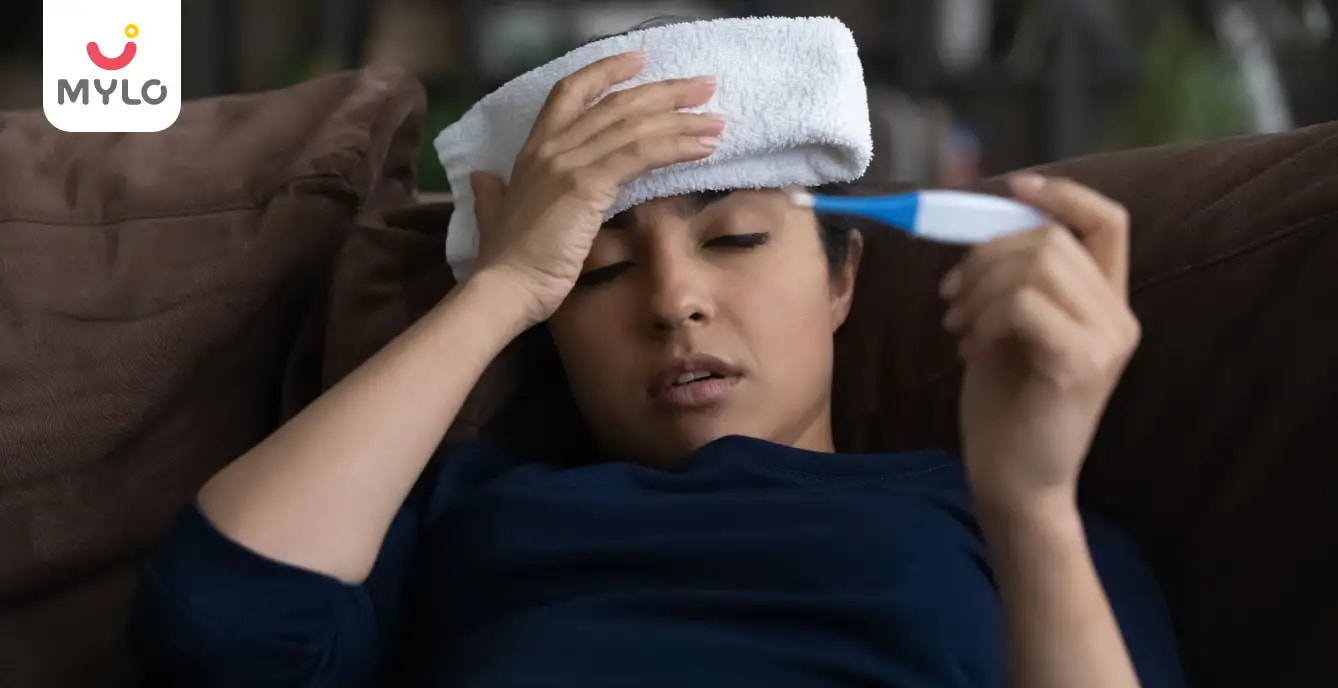
Symptoms & Illnesses
Malaria in Pregnancy: Causes, Effects & Treatment
Updated on 3 November 2023
Malaria, a mosquito-borne parasitic infection, is a major health concern around the world. It can also be dangerous for pregnant women and their unborn babies. Malaria in pregnancy can lead to severe complications and even death.
More than one hundred twenty-five million pregnant women are at risk of contracting malaria yearly. Malaria is a leading cause of anaemia, preterm delivery, low birth weight, and infant mortality. It can also cause serious health problems for the mother, including seizures and kidney failure.
Here we will learn about the causes of malaria in pregnancy, its effects, and treatment malaria in pregnancy.
What is malaria in pregnancy?
Malaria pregnancy is a type of malaria infection that occurs during pregnancy. Malarial infection poses a far greater risk of severe disease for pregnant women. Pregnant women are three times more likely to be affected than other individuals. The WHO estimates that about 200,000 babies die every year from malaria during pregnancy.
This infection is caused by the female Anopheles mosquito, which carries the Plasmodium parasite. The condition can be dangerous for the mother and her unborn child, causing severe health problems.
You may also like : Jaundice in Pregnancy: Causes, Symptoms & Treatment
How to diagnose malaria in pregnancy?
Malaria is divided into two types: Severe and uncomplicated. A blood test is necessary to diagnose malaria in pregnancy. Treatment should begin immediately if the infection is confirmed.
Uncomplicated malaria is diagnosed through a blood test and physical examination of the patient. Blood tests can detect the presence of parasites. The cause of the infection is determined by analyzing the mother's medical history and doing a physical examination.
Similarly, a blood test and physical examination are needed to diagnose severe malaria. The general cause of Severe malaria is P falciparum infection, which is more likely to be fatal. The symptoms of Severe malaria include fever, chills, headaches, and weakness. Doctors diagnose severe cases through laboratory tests and physical examinations.
Other illnesses also cause similar symptoms to complicate malaria diagnosis in pregnancy, such as typhoid, dengue, and leptospirosis. It is essential to seek medical attention if pregnant women have any symptoms.
You may also like : Dengue During Pregnancy: Causes, Symptoms, Risks & Treatment
Effects of malaria in pregnancy
The effects of malaria in pregnancy can be severe for both the mother and baby. Following are some of the complications of malaria in pregnant women.
1. Anaemia
Malaria-related anaemia is one of the most serious problems for pregnant women, as it can lead to severe health issues or even demise.
2. Preterm birth
Malaria infection increases the risk of premature delivery, which can lead to several other medical issues in newborns.
3. Low birth weight
Babies born to mothers infected with malaria are more likely to be born with low birth weight, putting them at higher risk of health complications.
4. Miscarriage
Malaria infection in pregnant women can also lead to miscarriage or fetal death.
5. Congenital malaria
In rare cases, the infection may be passed from mother to baby, leading to congenital malaria, which can cause severe health problems in newborns.
Causes of malaria in pregnancy
The causes of malaria in pregnant women are similar to those of any other person. They include:
1. Mosquito bites
Mosquitoes carrying the malaria parasite can transmit the infection to humans through their bites.
2. Travel
Travelling to areas where malaria is common puts you at risk of disease.
3. Blood transfusion
Transfusions of contaminated blood or blood products can also cause malaria.
By carelessly sharing needles to administer drugs: Sharing needles to inject drugs can also put a person at risk of malaria.
You may also like : Infections During Pregnancy That Can Harm Your Baby
Treatment of malaria in pregnancy
Malaria in pregnancy treatment should be started as early as possible. WHO recommends antimalarial drugs to prevent and treat malaria in pregnant women. Below are the malaria pregnancy treatment options:
1. Combination of quinine and clindamycin
For treating uncomplicated malaria in pregnancy, the WHO recommends a combination of quinine and clindamycin.
2. Intravenous (IV) quinine or artesunate
The WHO recommends IV quinine or artesunate for severe malaria in pregnant women.
In addition, It is also crucial for malaria pregnancy treatment to include measures to prevent further infections. Pregnant malaria treatment and diagnosis can help to prevent severe illness and complications.
Prevention of malaria during pregnancy
The best way to prevent malaria in pregnancy is through prevention measures. This includes:
1. Using insect repellent
Use an insect repellent containing DEET or picaridin to keep mosquitoes away.
2. Bed nets
Use a bed net to protect from mosquito bites while sleeping.
3. Clean environment
Eliminate standing water near the home to reduce mosquito breeding.
4. Regular check-ups
Have regular check-ups with the doctor during pregnancy to monitor for any signs of malaria.
Preventive measures will help reduce the risk of malaria in pregnancy and ensure a healthy pregnancy. The WHO (World Health Organization) recommends that pregnant women living in areas with a high risk of malaria should be offered intermittent preventive treatment (IPT) during their first and second trimesters.
References
1. Bauserman M, Conroy AL, North K, Patterson J, Bose C, Meshnick S. (2019). An overview of malaria in pregnancy. Semin Perinatol.
2. Takem EN, D'Alessandro U. (2013). Malaria in pregnancy. Mediterr J Hematol Infect Dis.
Tags
Malaria in pregnancy in Hindi, Malaria in pregnancy in Tamil, Malaria in pregnancy in Telugu, Malaria in pregnancy in Bengali
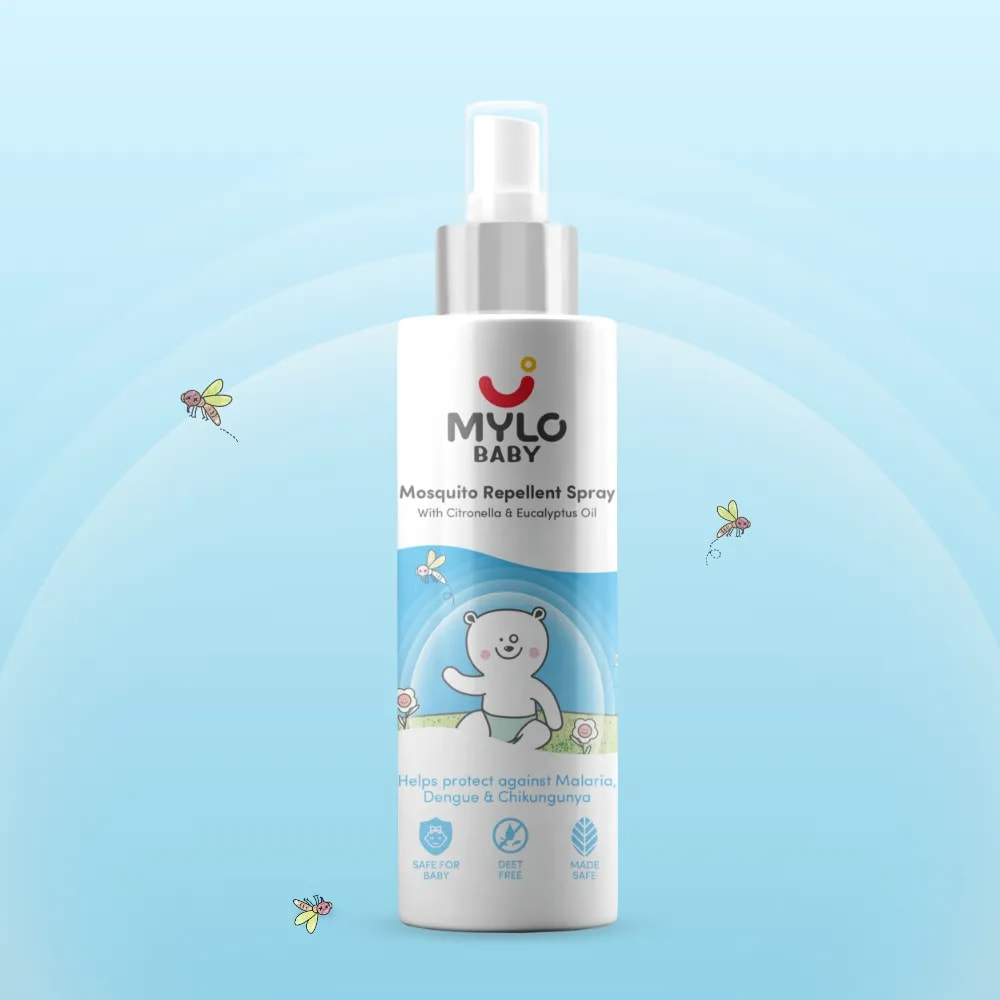
Baby Mosquito Spray - 100 ml
100% Natural Ingredients | Protects Against Dengue, Malaria, Chikungunya
₹ 217

4.5
(1579)


7106 Users bought



Written by
Sanju Rathi
A Postgraduate in English Literature and a professional diploma holder in Interior Design and Display, Sanju started her career as English TGT. Always interested in writing, shetook to freelance writing to pursue her passion side by side. As a content specialist, She is actively producing and providing content in every possible niche.
Read MoreGet baby's diet chart, and growth tips

Related Articles
Related Questions
Hello frnds..still no pain...doctor said head fix nhi hua hai..bt vagina me pain hai aur back pain bhi... anyone having same issues??

Kon kon c chije aisi hai jo pregnancy mei gas acidity jalan karti hain... Koi btayega plz bcz mujhe aksar khane ke baad hi samagh aata hai ki is chij se gas acidity jalan ho gyi hai. Please share your knowledge

I am 13 week pregnancy. Anyone having Storione-xt tablet. It better to have morning or night ???

Hlo to be moms....i hv a query...in my 9.5 wk i feel body joint pain like in ankle, knee, wrist, shoulder, toes....pain intensity is high...i cnt sleep....what should i do pls help....cn i cosult my doc.

Influenza and boostrix injection kisiko laga hai kya 8 month pregnancy me and q lagta hai ye plz reply me

Related Topics
RECENTLY PUBLISHED ARTICLES
our most recent articles

Diet & Nutrition
গর্ভাবস্থায় আলুবোখরা: উপকারিতা ও ঝুঁকি | Prunes During Pregnancy: Benefits & Risks in Bengali

Diet & Nutrition
গর্ভাবস্থায় হিং | ঝুঁকি, সুবিধা এবং অন্যান্য চিকিৎসা | Hing During Pregnancy | Risks, Benefits & Other Treatments in Bengali

Women Specific Issues
স্তনের উপর সাদা দাগ: লক্ষণ, কারণ এবং চিকিৎসা | White Spots on Nipple: Causes, Symptoms, and Treatments in Bengali

Diet & Nutrition
গর্ভাবস্থায় পোহা: উপকারিতা, ধরণ এবং রেসিপি | Poha During Pregnancy: Benefits, Types & Recipes in Bengali

Diet & Nutrition
গর্ভাবস্থায় মাছ: উপকারিতা এবং ঝুঁকি | Fish In Pregnancy: Benefits and Risks in Bengali

Diet & Nutrition
গর্ভাবস্থায় রেড ওয়াইন: পার্শ্ব প্রতিক্রিয়া এবং নির্দেশিকা | Red Wine During Pregnancy: Side Effects & Guidelines in Bengali
- ইনার থাই চ্যাফিং: কারণ, উপসর্গ এবং চিকিৎসা | Inner Thigh Chafing: Causes, Symptoms & Treatment in Bengali
- গর্ভাবস্থায় ব্রাউন রাইস: উপকারিতা ও সতর্কতা | Brown Rice During Pregnancy: Benefits & Precautions in Bengali
- Velamentous Cord Insertion - Precautions, Results & Safety
- Unlock the Secret to Flawless Skin: 7 Must-Have Qualities in a Face Serum
- Unlock the Secret to Radiant Skin: How Vitamin C Serum Can Transform Your Complexion
- Gender No Bar: 10 Reasons Why Everyone Needs a Body Lotion
- Unlock the Secret to Radiant Skin How to Choose the Perfect Body Lotion for Your Skin Type
- Top 10 Reasons to Apply a Body Lotion After Every Bath
- Communication in Toddlers: Milestones & Activities
- How to Improve Vocabulary for Toddlers?
- A Comprehensive Guide to Understanding Placenta Accreta
- Vulvovaginitis in Toddlers Causes, Symptoms and Treatment
- A Comprehensive Guide to Understanding Cerebral Palsy in Children
- Bitter Taste in Mouth During Pregnancy: Understanding the Causes and Remedies


AWARDS AND RECOGNITION

Mylo wins Forbes D2C Disruptor award

Mylo wins The Economic Times Promising Brands 2022
AS SEEN IN

- Mylo Care: Effective and science-backed personal care and wellness solutions for a joyful you.
- Mylo Baby: Science-backed, gentle and effective personal care & hygiene range for your little one.
- Mylo Community: Trusted and empathetic community of 10mn+ parents and experts.
Product Categories
baby carrier | baby soap | baby wipes | stretch marks cream | baby cream | baby shampoo | baby massage oil | baby hair oil | stretch marks oil | baby body wash | baby powder | baby lotion | diaper rash cream | newborn diapers | teether | baby kajal | baby diapers | cloth diapers | laundry detergent 6472 | lactomama lactation granules |



